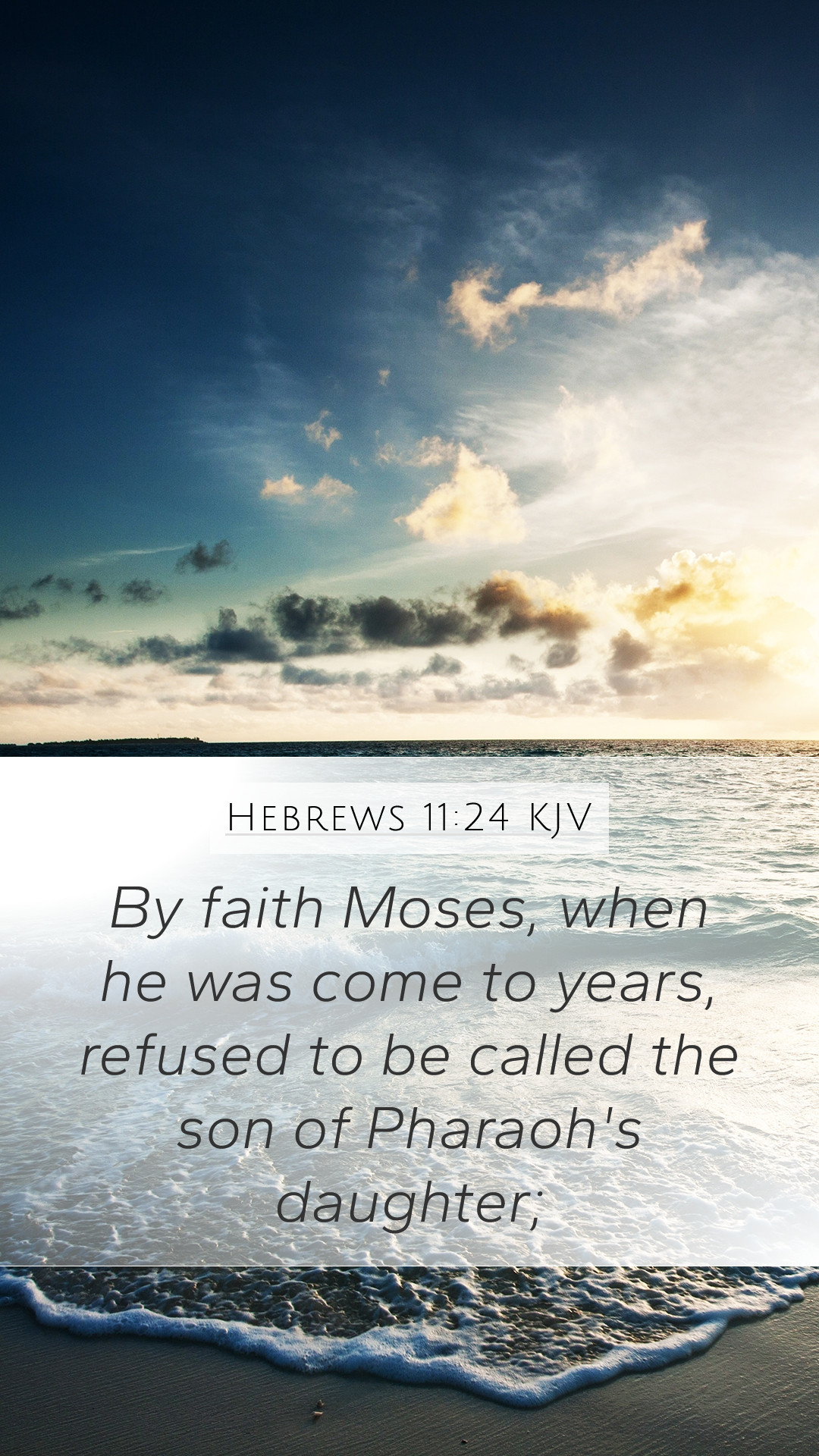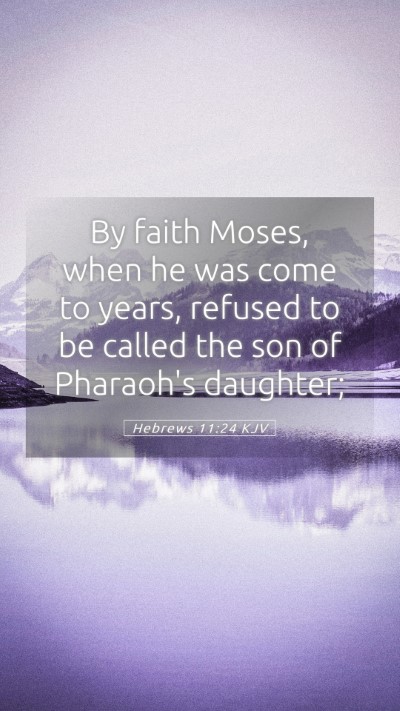Understanding Hebrews 11:24
In the book of Hebrews, specifically in Hebrews 11:24, we encounter a profound illustration of faith through the life of Moses. This verse states: “By faith Moses, when he was come to years, refused to be called the son of Pharaoh’s daughter.” The meaning of this verse is rich and layered, providing ample material for Bible verse interpretations and scripture analysis.
Context and Background
Hebrews 11 is often referred to as the "Hall of Faith," where the author details exemplary lives of faith throughout biblical history. When interpreting this verse, one must consider the historical context of Moses’ life. Born into a Hebrew family during a time of oppression, Moses was raised in the Egyptian royal household. His decision to refuse the privileges afforded to him as Pharaoh’s daughter’s son highlights the depth of his allegiance to his people and to God.
The Meaning of the Verse
This verse presents several key insights:
- Faith Over Privilege: Moses' refusal to be identified with the royal family signifies a deep commitment to the Hebrew people and a rejection of worldly power. Matthew Henry notes that true faith often requires sacrificing worldly advantages for the sake of something greater.
- Courage in Identity: Adam Clarke emphasizes that Moses was willing to embrace his true identity as a Hebrew rather than a prince, encouraging believers to seek their identity in God rather than societal status.
- Divine Calling: By faith, Moses prioritized his divine calling over material comfort. Albert Barnes elucidates that this act demonstrates a person's commitment to God’s will, reflecting a theme present throughout Scripture: the call to follow God despite societal pressures.
Biblical Exegesis
In exploring the Bible verse meanings, it is crucial to perform a biblical exegesis. This involves analyzing the original language of the text and understanding the cultural context:
- Original Language: The Greek term used indicates a conscious choice. Moses deliberately chose to align himself with the oppressed rather than the oppressor.
- Cultural Significance: In ancient times, identifying with one’s people was of utmost importance. Moses’ choice had implications not only for his life but for the future of the Israelites.
Application in Daily Life
This passage encourages modern readers to consider how their faith impacts their choices. Just like Moses, believers are called to:
- Make Bold Decisions: Reflecting on how their faith may require sacrifices in a world that often values success and status.
- Understand Identity: Find their true identity in Christ, which may sometimes oppose societal expectations.
- Courageously Follow God: Prioritize God’s calling over the comfort of earthly possessions or status.
Related Bible Cross References
- Exodus 2:11-15: Details Moses’ early life and the events leading to his flight from Egypt, providing context to his decision of faith.
- Hebrews 11:26: Continues to discuss the value Moses placed on spiritual wealth over temporary riches.
- Philippians 3:8: Paul’s perspective on considering all things loss for the sake of Christ aligns closely with Moses’ choices.
Conclusion
The significance of Hebrews 11:24 extends beyond its immediate words; it serves as a timeless lesson on faith, identity, and priorities in life. For those engaged in Bible study resources or online Bible study, this verse encapsulates the courage and commitment required to live out one’s faith authentically. As seekers of the meaning of Bible verses, it is our challenge to reflect on what we may need to refuse in order to accept God’s greater calling on our lives.


